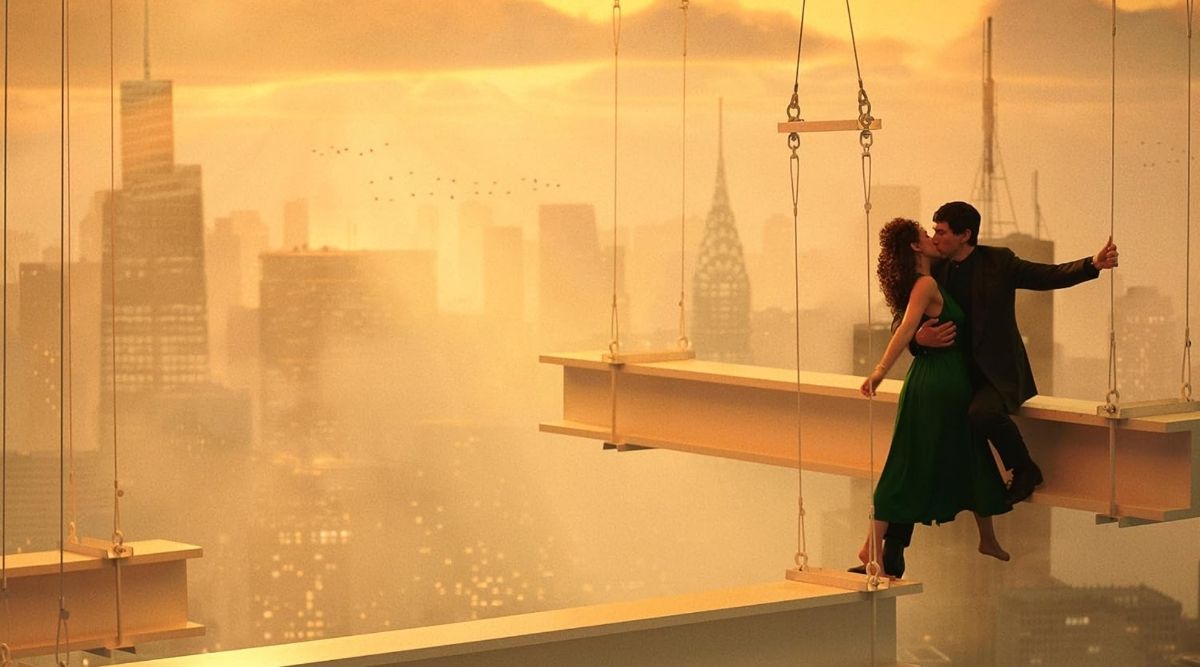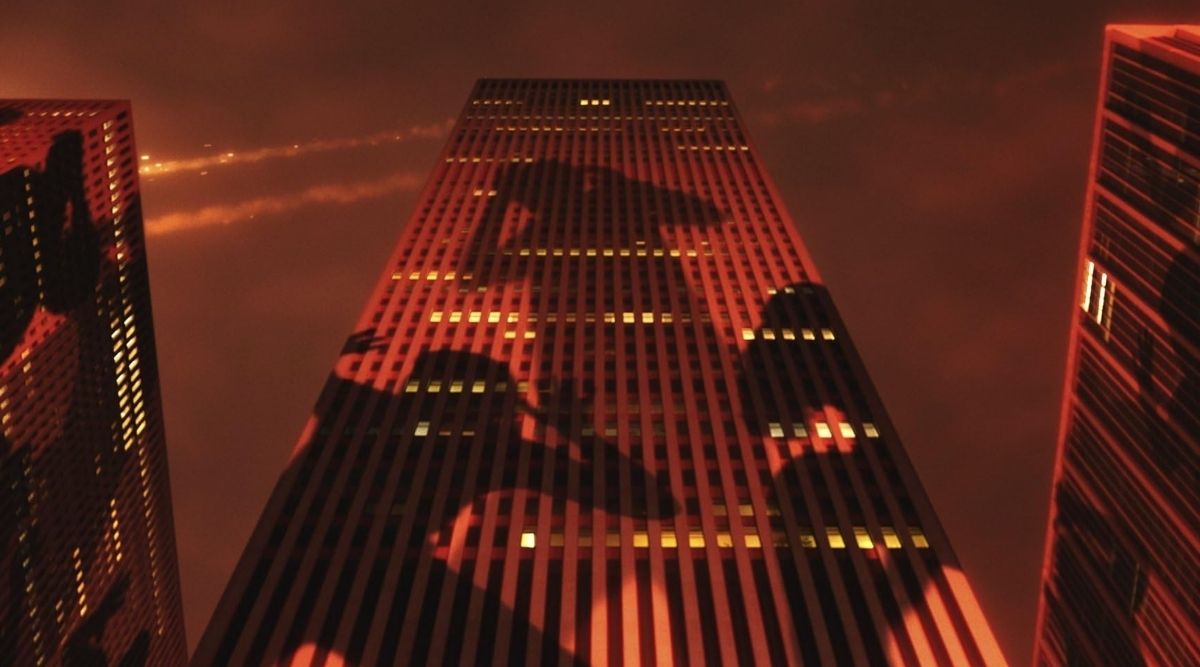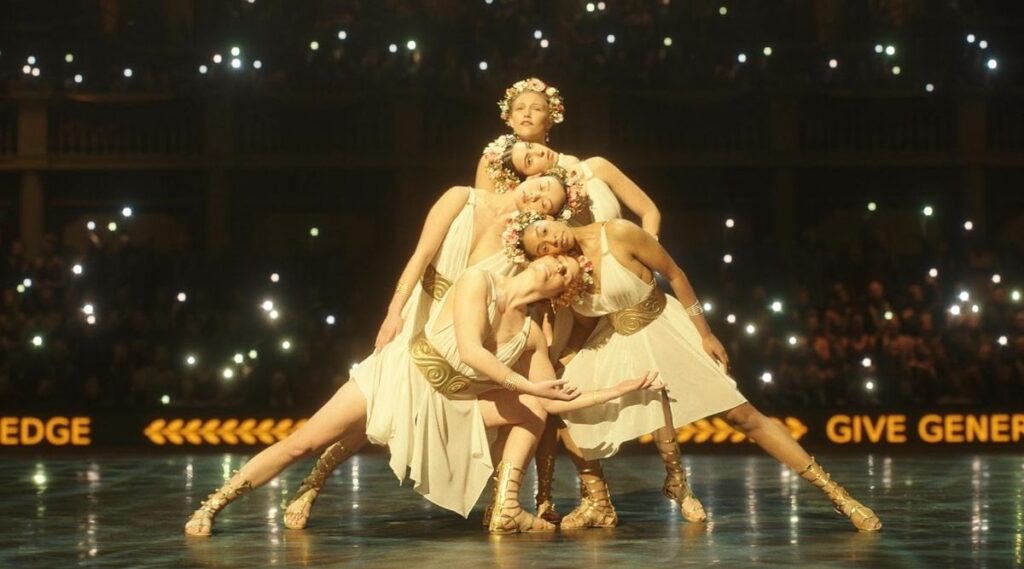This article contains light, non-plot spoilers for Megalopolis
My good moviegoers. I know Francis Ford Coppola is famous for such serious masterpieces as The Godfather and Apocalypse Now. But please, please believe me when I tell you that his latest masterpiece, Megalopolis, is complete, utter, and intentional camp. I know this is hard to believe. I know the marketing for this movie would have you believe it’s a big, sweeping epic about a misunderstood genius building a utopia for everyone: rich, poor, and evil. But Megalopolis is a farce. It’s a parody, a warning, and lacks completely in self-seriousness.
This isn’t just a clever reading of the movie by somebody dying to find something in it that doesn’t exist. It’s baked into the text, the casting, and the commentary Coppola himself has made surrounding the film. In his press leading up to the event, particularly in a live-streamed Q&A before the New York Film Festival screening of the movie, Coppola declared several times that every one of us is cousins and part of one big family. It’s a silly-sounding thing for an old man to say. It could read as out of touch, especially considering his well-known stances on America’s political and social division. But he doesn’t lay this claim lightly.
It’s echoed in the final voiceover of the movie itself—an alternative Pledge of Allegiance, essentially to Planet Earth itself. It asks us to vow to be one people, united across nations and political divides for the sake of building a better world together. Coppola might be a dreamer, but he also knows this is nonsense. He doesn’t want you to buy into the phony concept, he wants you to be outraged that it can never happen. For a little over two hours, Megalopolis is designed to portray a ridiculous vision of an American future to be made fun of and to envy.

It’s easy to charge Megalopolis with being too straightforward with its politics, but that is exactly what makes camp so potent. The combination of ridiculous and entertaining is powerful enough to make you briefly wish, or even believe, that what you’re seeing before your eyes could actually be real. If the movie didn’t make it abundantly clear that it detests the axes of power that make our world insufferable (corrupt politicians, greedy capitalists, feckless visionaries, self-important media moguls, and privileged men with small egos), none of it would be nearly as effective to make fun of.
The camp is so clear in the casting itself. First of all, you simply do not cast Aubrey Plaza, Shia LaBeouf, Giancarlo Esposito, Jason Schwartzman, Grace VanderWaal, Chloe Fineman, or Laurence Fishburne as side characters in your movie without knowing full well that audiences have instantaneous expectations of what those characters will be like. And every single one of them plays their typecast character to such exaggeration. The Grace VanderWaal example is probably the most exemplary.
She has never been in a movie without her ukulele. By now, she’s 20 years old and clearly trying to break into different types of roles. Yet, she’s still on a marvelously ironic colosseum stage playing those four strings, taking a “Virgin’s Pledge” in front of an enthralled audience. Even if Adam Driver didn’t perform a bizarre, alcohol/drug-induced dance during this scene, the very moment VanderWaal breaks out that ukulele all these years after the shtick has clearly gotten old should be an indication that Megalopolis wants you to laugh like it’s an inside joke.
Aubrey Plaza’s character is named Wow Platinum. In a world where everyone and everything is Romanized, that name sticks out prominently, just like Plaza does the moment she walks into literally any room. Schwartzman’s little drum solo? LaBeouf in drag? Bizarre living statues? Fineman sleeping with her twin sister? Literally, everyone constantly giving bizarre line readings and wearing over-the-top costumes? Fishburne breaking the fourth wall? We could go on and on, and none of this is camp to you? Just look at the image below and tell me that exaggeratedly panicked silhouettes on a skyscraper aren’t camp.

For those lucky few who caught an early screening or a special “Ultimate Experience” version of Megalopolis, there is a literal live human being that runs up to the screen mid-movie to actually shatter the fourth wall, in frankly, one of the most audacious and stunning moments of camp conceivable for a major motion picture. Copalla basically pauses the movie to say “Wait! We need a little Rocky Horror in here to remind everyone that this is in no way a self-serious production.” I’m so, so sorry for the countless people who will never be able to experience Megalopolis this way: the way it was meant to be experienced.
When the final shot freezes time and closes a circle around a baby, surrounded by the titans of society who doomed the planet this child must inherit, don’t think of it as a happy ending. It’s a tragedy. Those men have diluted themselves into believing they’ve saved humanity when it is so, so clear that Coppola sees the result of Megalopolis is nothing more than a pipedream.
He doesn’t want us to waste our time building a utopia on the backs of the countless people who will never get to enjoy it. He wants us to freeze time now and fix the world we actually live in before it’s too late. Hopefully, enough of his viewers will be willing to see the movie that way, too. After all, the movie is basically a prequel to Metropolis, don’t forget.
Megalopolis is playing now in theaters everywhere.







